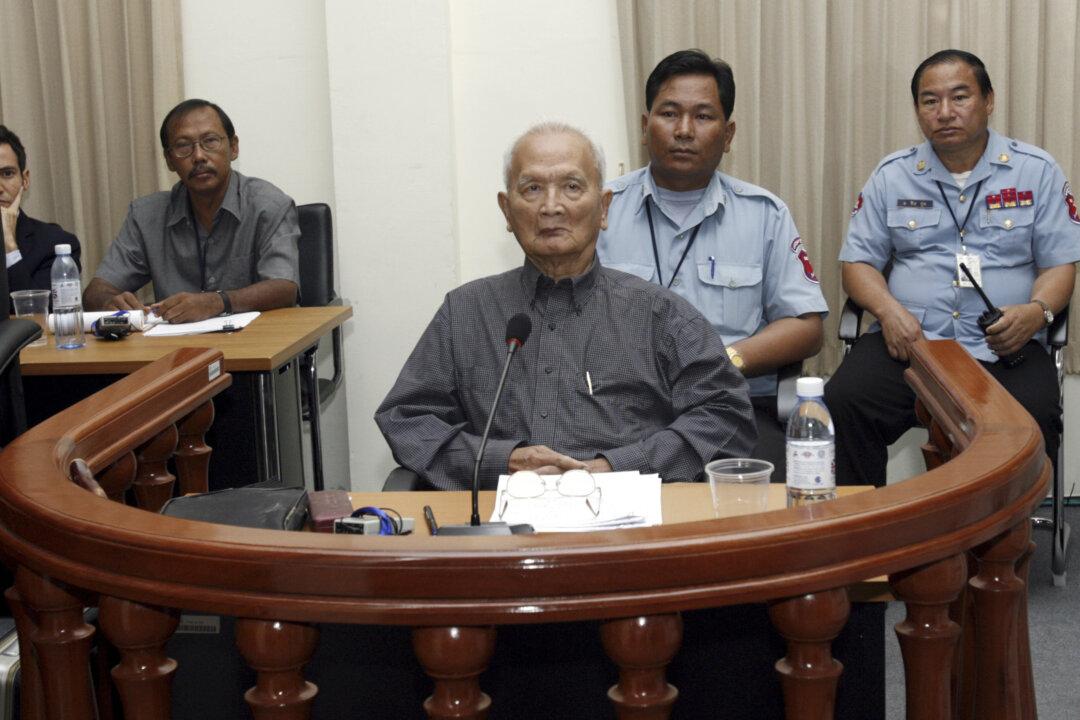PHNOM PENH, Cambodia—Nuon Chea, the chief ideologist and “Brother Number Two” of Cambodia’s Khmer Rouge, whose brutal rule in the 1970s led to the deaths of some 2 million people, died on Aug. 4 at the age of 93, a court spokesman said.
A U.N.-backed court found Chea guilty of genocide and sentenced him to life in prison last year, almost four decades after the Maoist regime which oversaw Cambodia’s “Killing Fields” was overthrown.





